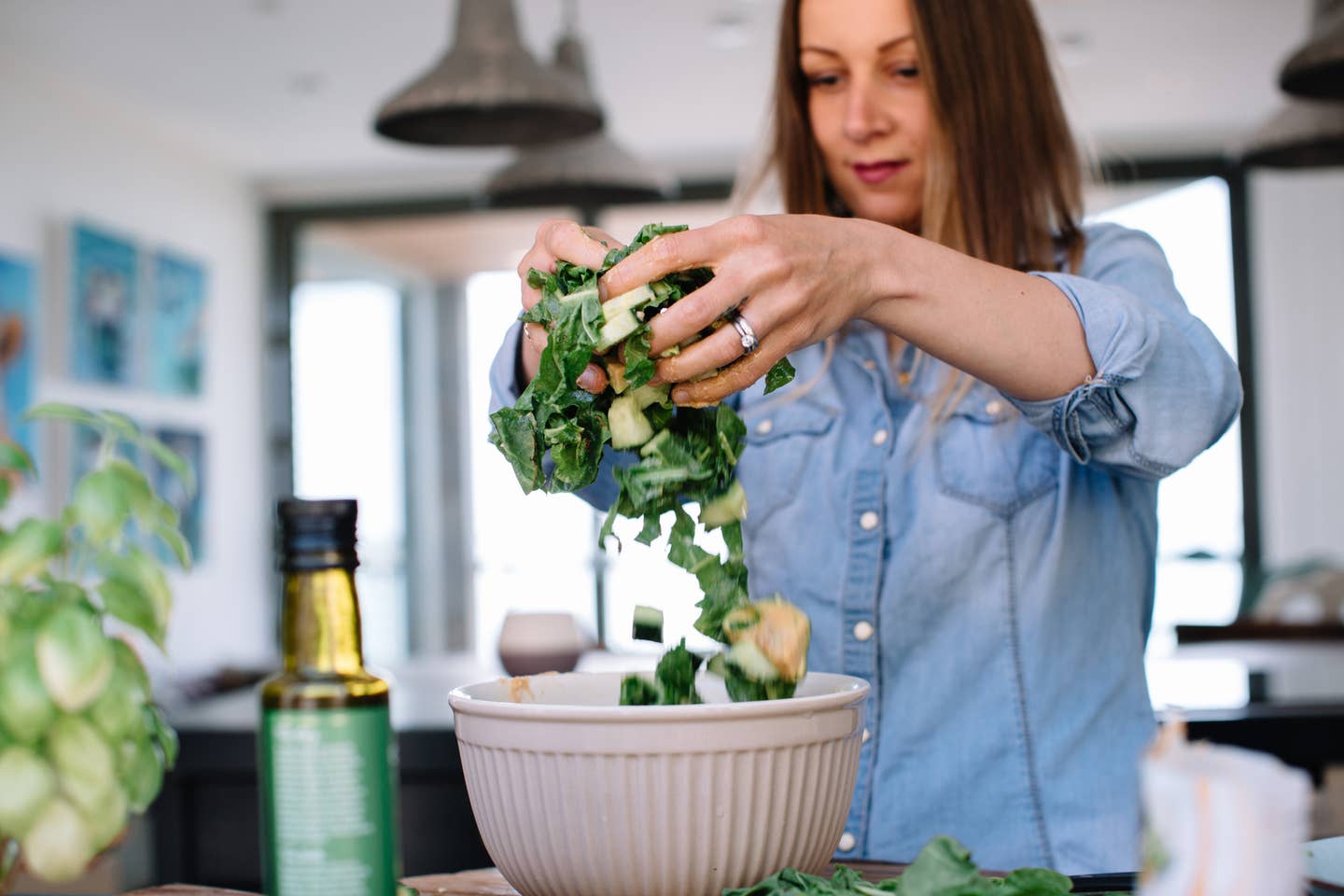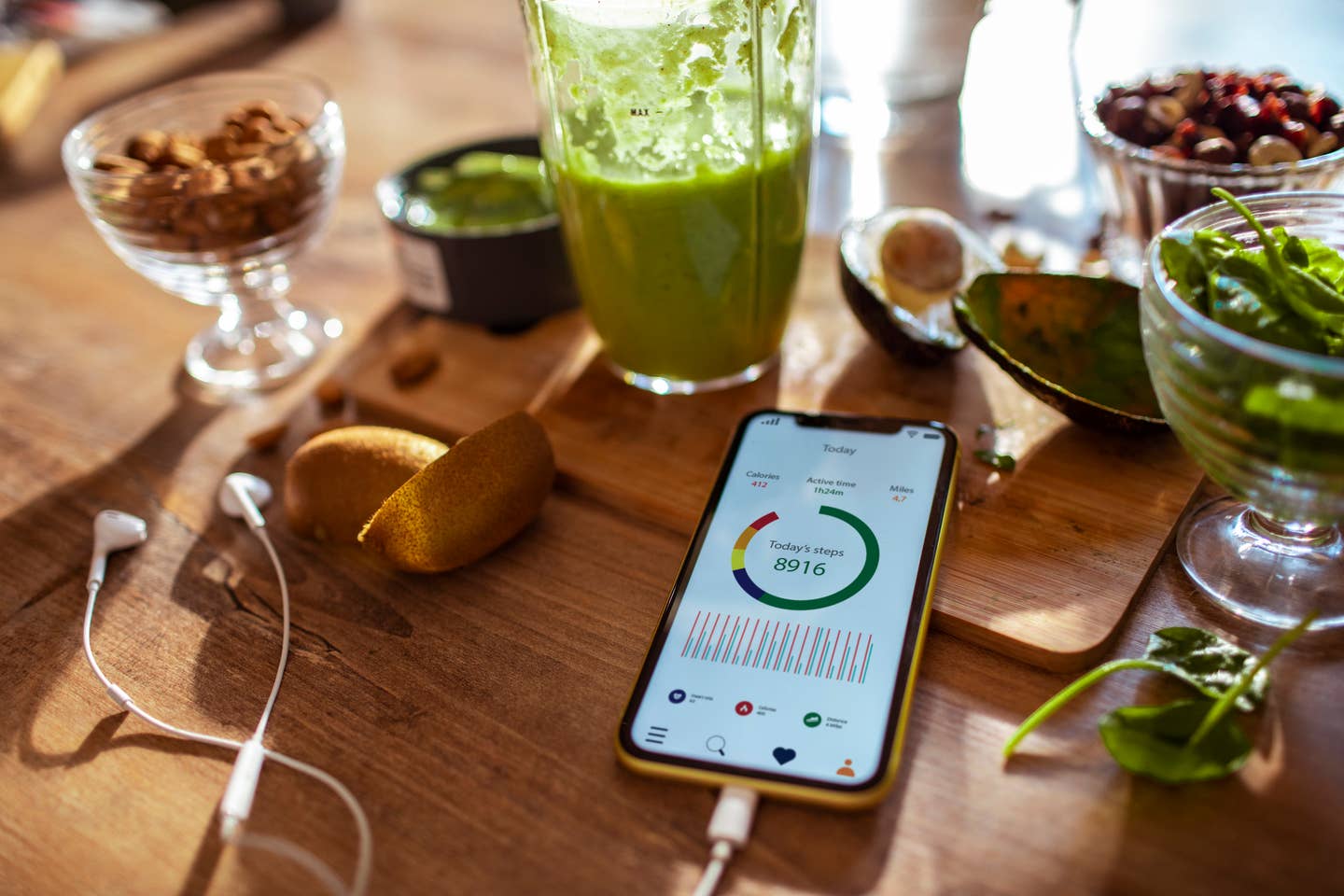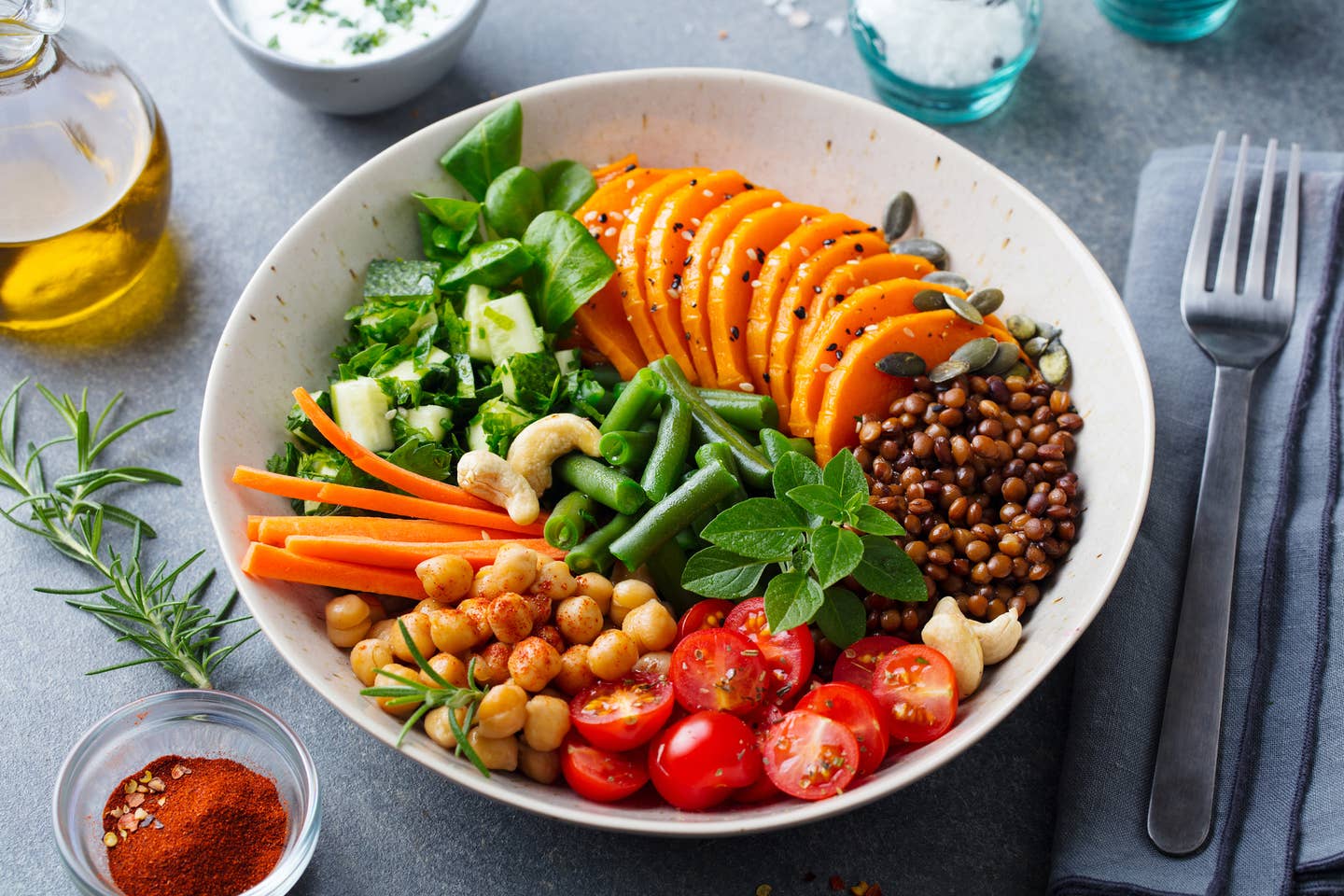
3 Simple Steps to Start “Clean Eating” to Lose Weight and Boost Immunity
Should you try "clean eating" as an approach to a healthy diet? People who try to follow a "clean eating" plan end up getting more healthy servings of fruits and vegetables into their diet than those who don't believe in a "clean eating" approach, research finds. If you're trying to eat clean for summer and consume more fruits, vegetables, and whole foods to have better immunity, energy and succeed at weight loss, taking a "clean eating" approach is a positive way to go.
Study subjects who followed the advice to "eat clean" by limiting processed foods, including processed meat, and eat clean, which is defined as consuming more fruit and vegetables are "more likely to meet the dietary guidelines" of five servings of fruits and vegetables a day, in contrast to those who rarely or never try to eat clean, according to a study published in the journal Nutrients. Those who rarely or never try to eat clean did not consume as much healthy food as the clean eaters, who also exhibited a higher level of dietary restraint. The only downside of following clean eating advice is that a ‘clean’ diet may lead to obsessive eating habits in certain women, the study found.
Clean eating is considered a positive approach to eating, which promotes the exclusion of processed foods and focuses on whole foods. The study asked 762 women ranging in age from 17–55 to self-report their intake and approach to clean eating. The most important aspect of clean eating is to get more servings of fruits and vegetables and whole foods such as whole grains into your diet and skip the packaged or processed foods, high in fat, added sugar, and preservatives.
The American Heart Association defines "eating clean" as adding more fruit, vegetables, and whole grains to your plate while getting rid of packaged foods and junk food. They do encourage not just fresh vegetables, but also frozen or canned vegetables such as peas, broccoli, and beans, but not the kind with added sugar or buttery sauce. When defining processed foods the AHA points out that most food has been minimally processed in some way, but while baby carrots are part of clean eating, cheesy Doritos are not. To start your clean eating approach, lose weight, and boost immunity, start with these 3 simple steps.
Try 3 Simple Steps to Start Your Day and Begin Clean Eating This Summer
The three easiest ways to eat clean and try to start your clean eating practice for summer are to add more fiber in the form of fruit, to drink more water, and to add vegetables at breakfast, such as avocado toast or a smoothie.
1. Add more fruit to your diet, especially early in the day, to be healthy
Several recent studies have shown that people who avoid fruit because they worry that the inherent natural sugar in fruit is bad for them are going about it the wrong way. You need to eat more fruit since only 9 percent of Americans get their daily recommended servings of 2 fruits and 3 vegetables a day. The fruit has important fiber as well as nutrients such as antioxidants, vitamins, and phytochemicals that help boost your immunity and lower inflammation, as well as keep you full longer. A study published in The Journal of Clinical Endocrinology & Metabolism found that people who eat whole fruit daily are less likely to develop diabetes, and consequently have lower blood sugar than those who don't eat fruit every day.
Another study found that people who eat dried fruit such as apricots, figs, dates and dried sliced apples have lower BMI and smaller waists than those who skip the dried fruit altogether. Find the kind that does not contain added sugar or added coatings, obviously, since those can drive blood sugar up.
Still another study on fruit showed that those who ate fruit for lunch are 50 percent less likely to suffer fatal heart disease or die prematurely of any other cause. The healthiest people in the study ate fruit for lunch and vegetables for dinner while the least healthy ate snacks like potato chips and other processed foods for snacks, so clean eating not only helps you lose weight and boost immunity but also lowers your risk of heart disease and death.
Most people get about half the amount of fiber they need in a day, which for women is more than 21 grams and for men is more than 38 grams. That's the minimum. An apple has about 7 grams, start eating fruit and you'll be able to keep your blood sugar in check and your insulin from spiking, which tells your body to store fat. Tell yourself most fruit is made up largely of water, so you're not only helping your cells take up nutrients slowly and steadily but helping your cells stay hydrated as well, which is a twofer when it comes to immunity and weight loss.
2. Drink more water, to boost weight loss and strengthen immunity
Drinking enough water every day is easier said than done, but when we drink the right amount, our bodies reap benefits such as increased focus, more energy, natural weight loss, and better digestion. Staying hydrated supports immune health and can give our daily workout performance a boost and improves how we feel physically and mentally. The flip side is that drinking less than we need undermines all of those things.
If water is not your favorite beverage, try infusing it with lemon, mint, cucumber, or a handful of fresh berries to make it tastier. The fact is you should have a large pitcher or water bottle at your elbow all day long and keep refilling your glass to be drinking all day long.
To make sure you're drinking the right amount, Nicole Osinga RD, who created The Beet's VegStart Diet recommends using this simple formula: Multiply your weight in pounds by two-thirds (or .67) and the number you get is the number of ounces of water to drink in a day. Meaning, if you weigh 140 pounds, you should drink 120 ounces of water every day, or about 12 to 15 glasses of water per day.
3. Add more vegetables to your breakfast, with avocado toast or a smoothie
One way to get started on clean eating is to start the day by skipping the sugary cereal, the carb-filled bagel or the added-sugar granola bar and instead focus on how to get more healthy whole foods into your diet, early in the day. This helps keep blood sugar low and stoke the metabolism to start fueling up in a way that will energize you and keep you feeling full longer.
One simple way is to try a small slice of avocado toast on whole wheat bread, with fresh avocado slices or homemade guacamole. The research on avocado is impressive since it shows that people who eat an avocado a day have smaller waists and lose weight more easily, due to the fact that avocado is full of healthy natural fat, plus fiber and protein, all of which turn on the body's satiety cues and stave off hunger for six hours after eating it.
The other way to get vegetables in the morning and up your fiber intake is by adding kale, celery or spinach to your morning smoothie along with fresh berries, almond milk, or nut butter such as almond or peanut butter for clean plant-based protein. A 2019 review published in Frontiers in Nutrition states that because fruit is so high in fiber, it is helpful in promoting weight maintenance or weight loss over a 3 to 24 week period. It’s also been shown that whole fruit intake could decrease your calorie intake, especially when it’s consumed before a meal or when eaten in place of other high-calorie foods.
Adding smoothies to your day instead of a meal or snack is also associated with healthy weight loss and immunity because the body's gut microbiome gets shifted from unhealthy bacteria to healthy bacteria when you add more fruit and vegetables to your diet. But smoothies add up so keep your smoothie as a snack to 300 calories or fewer and your smoothie as a replacement for a meal to 500 calories or fewer for best results.
If you prefer juicing, try that instead since, in a small study of participants who tried a 3-day juice-cleanse, the microbiome was still improved even two weeks after the cleanse ended, suggesting that these minor changes have an impact for days after you start your clean eating approach. The study, published in Food Science and Biotechnology, found that participants drinking fruit and vegetable juice for three weeks had a significant improvement in their gut microbiota 17 days after their cleanse, which helped improve weight loss, digestive issues, energy, and the appearance of their skin, as reported by the study subjects.
If you need to get back on track, here's how to course correct and eat clean
The best way to bounce back after overdoing it is to simply add a salad. A recent 2021 study published in the Recent Patents on Food, Nutrition & Agriculture found that the fiber content from salad vegetables was beneficial in keeping glucose rates from skyrocketing after meals. The researchers tested red oak leaf lettuce, red coral lettuce, green oak lettuce, butterhead lettuce, and romaine. The fiber content of these lettuces inhibited specific enzymes that are important in breaking down carbohydrates so the overall glucose absorption is reduced, which in turn keeps blood sugar low.
Just adding a salad to your meal, even if you eat a full-fat lunch or dinner, helps to keep blood sugar more stable than if you ate a big meal and skipped the side of greens. So if you end up overindulging one of these days, simply get back on track by eating a salad to help regulate blood sugar and damp down insulin response, then get back to your clean eating approach.
For more ways to start your clean eating approach to summer, try the free 2 Week Clean Eating Plan from The Beet with 5 recipes a day and helpful tips, motivation, and expert advice as to how to do it. And sign up for the free Smoothie of the Day Recipe Newsletter to get a new idea for a healthy, immune-boosting smoothie in your inbox every morning for 14 days.
The 13 Best Foods to Boost Your Immune System to Fight Off COVID-19 Symptoms
Here are the best foods to eat on repeat, to boost immunity and fight inflammation. And stay off the red meat.
1. Citrus for Your Cells and Healing
Your body does not produce vitamin C, which means you need to get it daily to have enough to create healthy collagen (the building blocks for your skin and healing).The recommended daily amount to shoot for is 65 to 90 milligrams a day, which is the equivalent of one small glass of orange juice or eating a whole grapefruit. Almost all citrus fruits are high in vitamin C. With such a variety to choose from, it's easy to get your fill.
2. Red Peppers to Pump Up Skin and Boost Immunity with Twice the Amount of Vitamin C as an Orange Has
Want even more vitamin C, add red bell peppers to your salad or pasta sauce. One medium-sized red bell pepper contains 152 milligrams of vitamin C, or enough to fulfill your RDA. Peppers are also a great source of beta carotene, a precursor of vitamin A (retinol). How much beta carotene do you need a day: You should try to get 75 to 180 micrograms a day which is the equivalent of one medium bell pepper a day. But a red pepper has more than two and a half times your RDA for vitamin C so eat them all winter long.
3. Broccoli, But Eat It Nearly Raw, to get the Most Nutrients Out of It!
Broccoli may be the most super of superfoods on the planet. It's rich in vitamins A and C as well as E. The phytochemicals in it are great for arming and strengthening your immune system.How much lutein should you eat in a day: There is no RDA for lutein, but experts say get at least 6 milligrams.
4. Garlic, Eaten By the Clove
Garlic isn't just a great flavor-enhancer, it's essential for your health. Garlic’s immune-boosting properties are tied to its sulfur-containing compounds, such as allicin. Allicin is thought to improve your immune cells' ability to fight off colds and flu, and viruses of all kinds. (Smelling more garlic on the subway? It could be smart coronavirus management.) Garlic also has anti-microbial and anti-viral properties thought to fight off infections. How much should you eat in a day: The optimal amount of garlic to eat is more than most of us can fathom: Two to three cloves a day. While that may not be doable, realistically, some people take garlic supplements to get 300-mg dried garlic in a powdered tablet.
5. Ginger is a Power Player for Immunity and Digestion
Ginger is another ingredient that has super properties when it comes to fighting off illness. It has been shown to decrease inflammation, which can help if you get swollen glands or a sore throat or any inflammatory ailment. Gingerol, the main bioactive compound in ginger, is a relative of capsaicin, and is responsible for much of its medicinal properties. It has powerful anti-inflammatory and antioxidant benefits.How much should you eat a day: Most recommendations land on 3–4 grams of ginger extract a day, or up to four cups of ginger tea, but no more than 1 gram a day if you are pregnant. Some studies have linked high dosages to an increased risk of miscarriage.
6. Spinach, Wilted, Not Steamed (Also Kale and Dark Leafy Greens of All Kinds)
Spinach is not only packed with vitamin C but also antioxidants and beta carotene, both of which give your immune system the healthy boost it needs to fight off invaders. Don't overcook your spinach, since the more it's cooked the less active the antioxidants will be. If you eat it raw or lightly steamed you'll keep more of the nutrients intact.How much should you eat a day: Aim for 1 cup fresh spinach or 1/2 cup cooked per day, but this is the right moment to try the raw or slightly wilted approach. Order warm or wilted spinach salad when you go out, or make it yourself with olive oil, pine nuts, and vegan parm.
7. Almonds for the Win, Pop Them Like Candy
Vitamin E in almonds will help ward off colds and flu and is key to your immune system humming along. It’s a fat-soluble molecule, meaning it requires the presence of fat to be absorbed, so nuts are the perfect package for E to make it into your system.How much should you eat in a day: A half-cup serving, or 46 whole, shelled almonds, provides almost 100 percent of your RDA of vitamin E. Almonds are great for you but they don't come with a "free" pass, since 1/4 cup is a serving and has 162 calories, so double that for your RDA and you're eating about 325 calories. Throw them into smoothies instead.
8. Turmeric to Fight Inflammation, Put it In Your Tea or Smoothie
This highly pigmented spice is known for its anti-inflammatory qualities. How it helps immunity? It decreases exercise-induced muscle damage. Tumeric bolsters the immune system by stimulating antibody formation and people with auto-immune diseases are told by their doctors to take 500 mg of curcumin daily to reduce inflammation and stave off soreness.How much should you eat in a day: Try adding extra Tumeric to your diet during periods of stress or during flu season. Or take 500-2,000 mg of curcumin to help fight inflammation and power up your immune system.
9. Green Tea by the Gallon, Skip the Coffee and Sip this Instead
Green tea has high levels of EGCG, (epigallocatechin gallate) a hard-working antioxidant that is known to boost immune function. Green tea is steamed so the EGCG is still active when you drink it.Green tea also contains L-theanine, an anti-oxidant which appears to help in the production of T-cells in your body, the killer L-theanine may aid in the production of germ-fighting compounds in your T-cells.How much green tea should you drink in a day: The optimal amount is three to five cups in a day, but most people won't get to that level. Any amount is better than nothing. Swap out a usual beverage daily for green tea could improve your health.
10. Papaya, The Tropical Healer to Keep You Vacation-Healthy All Year Round
Papaya delivers over twice your recommended daily amount of vitamin C in one fruit. It also contains an enzyme called papain that has anti-inflammatory effects -- and inflammation is one factor in most illnesses, so avoiding it can help your body fight off bacterial infections like sinusitis.Papayas contain potassium, vitamin B, and folate, which is a powerful cell rebuilder. Exactly how folic acid works to build immunity is linked to its role in protein synthesis, and researchers think that any mechanism in which cells proliferate can be affected (which is why it's critical for pregnant women). People who are folate-deficient have compromised immune systems.How much folate should you eat a day: Whether you are pregnant or not, folate (vitamin B9) is a great vitamin to keep your cells healthy and strong. The recommendation is 400 micrograms a day, or get it from legumes, spinach, papayas, and avocados.
11. Kiwis, a Vitamin Powerhouse
Kiwis are full of folate, vitamin K, vitamin C, and potassium. These vitamins in combination work in the body to build healthy cells, fight infection and keep your immune system humming along. Vitamin K deficiency is rare but when people don't have enough they suffer from weak bones and compromised immune systems. The inflammation system in the body is also dependent on vitamin K, especially your killer T cells that mobilize and fight cancer and other diseases.How much should you eat in a day: Vitamin K is one of the unsung heroes of the body. Women should get 90 micrograms a day, and men should have 120 micrograms.
12. Sunflower seeds to sprinkle on salads or eat by themselves
Sunflower seeds are especially healthy since they provide phosphorus, magnesium and vitamin B-6 as well as vitamin E. Your immune system needs vitamin E to function at full throttle. You can also get vitamin E from avocados and spinach and broccoli.How much should you eat in a day: Anywhere from 1 ounce (30 grams) per day to a healthy handful is considered healthy, but because they are high in sodium you might want to refrain from eating the entire bag. The raw seeds have 204 calories per quarter cup.
13. Miso, Soup or Paste to Add to Your Soups and Salad Dressings
The nutrients in miso -- which is a soybean paste that has been fermented with salt and a koji starter -- boosts immune system function by delivering healthy probiotics to the gut, making your microbiome healthier. How does Miso benefit your immune system? It is a "sirt" food, which are foods that contain high levels of ‘sirtuins’ or proteins that regulate cells and activate metabolism. A diet high in sirts is believed to lead to weight loss, increased wellness and longevity.How much should you eat in a day? Researchers believe that consuming one bowl of miso soup per day, as is the tradition in Japan, lowers the risks of breast cancer. Other than its high sodium content there is no reason to stay away from miso with all its varied health benefits. We say cheers to that.
More From The Beet






